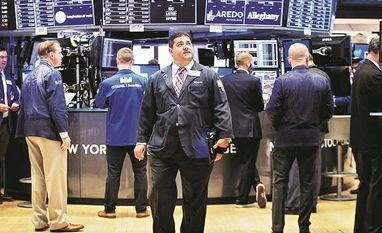Money managers at shops from Franklin Templeton to BlackRock are betting that developing-nation stocks and bonds will continue to appreciate in the months and years ahead, as they catch up from more than half-a-decade of underperforming US assets.
The bullish calls come amid lofty asset prices globally and growing concern that they aren’t sustainable, especially as US central bankers pare the stimulus that helped fuel gains. Even in this context, emerging markets will benefit from stable commodity prices, improving economic growth and balance-sheet repairs since a bout of interest-rate anxiety in mid-2013 spurred a sell-off known as the taper tantrum, according to Michael Gomez, who oversees $40 billion in emerging-market debt at Pacific Investment Management.
“We still think EM screens fair-to-cheap,” Gomez said from Newport Beach, California, where he manages a local-currency bond fund that’s outperformed 72 per cent of peers in the past year. Any dip in prices “could be a relatively short-lived affair and we have the dry powder to take advantage of it.”
Fund flows show investors have been timid in returning to emerging markets since the taper tantrum, but that’s changing. Traders put money into exchange-traded funds that buy developing-nation assets for four consecutive weeks, with the biggest inflows going to Brazil as well as China, Hong Kong and Taiwan, according to data compiled by Bloomberg.
Another sign that emerging-market equities still have plenty of room for gains is that the amount of money portfolio managers dedicate to the space is still below levels seen before the 2008 financial crisis, according to Stephen Dover, who oversees $416 billion at Franklin Templeton. He’s overweight Brazilian and Argentine stocks on optimism that their political reforms can continue as well as Vietnamese and Indonesian equities on strong growth forecasts.
“The stock market is at an all-time high, but that’s because there’s no alternative,” Dover, Templeton’s head of equities and chief investment officer of its emerging-market arm, said from Ho Chi Minh City. “The US has been such a disproportionate outperformer these past few years that there has to be some equilibrium. On a relative basis, emerging markets will likely outperform the US over three to five years.”
Developing-nation stocks have jumped 28 per cent this year, poised for the best annual gain since 2009, as they approach all-time highs. Sovereign dollar bonds have rallied 8.8 per cent and hit record levels this month compared to an average 7.1 per cent return for developed-nation notes, according to data compiled by Bloomberg. Emerging-market currencies have climbed to their highest level against the US dollar since October 2014.
Still, there could be some near-term speed bumps. On September 20, the Federal Reserve said it will begin winding down its balance sheet in October, effectively dialing back on the easy money that has helped fuel the lofty valuations in assets around the world.
Wall Street’s response to the Fed’s tapering plan has so far been muted as a weaker dollar spurs optimism about developing-world assets. Current-account deficits, the broad trade measure that spurred concern in 2013 — are less than half their size four years ago in countries including South Africa and Turkey.
Other risks include the outlook for Chinese politics and a heavy electoral calendar next year from Mexico to Venezuela, according to Gomez, who favours Brazilian local rates and Argentine debt. He sees potential leadership changes helping drive higher growth over the next decade in nations that have muddled through sluggish expansions or recessions.
“It’s been somewhat of a joyless rally so far,” Gerardo Rodriguez, a former deputy finance minister in Mexico who’s now a money manager at BlackRock, said from New York. “For emerging-market equities, the rally can go well into 2018 or beyond.”
He favours equities in Brazil, China and Indonesia and debt from higher quality credits such as Poland and Mexico.
Leon Eidelman, who oversees about $90 billion for JPMorgan Investment Management, said he’s increasing exposure to “new economy” stocks in Asia. He favours technology companies such as Tencent Holdings, Alibaba Group Holding and JD.com as well as Taiwan Semiconductor Manufacturing on the view that silicone production will become even more important as self-driving cars and household devices connected to the Internet gain popularity.
“We’re still confident that EM is in a much better place than it was before,” Eidelman said from New York. “Are commodities going to get worse? Probably not. The dollar we’ve seen as relatively overpriced. Then you’ve got underlying economic and EPS growth that we haven’t seen in six years.” Bloomberg
To read the full story, Subscribe Now at just Rs 249 a month
Already a subscriber? Log in
Subscribe To BS Premium
₹249
Renews automatically
₹1699₹1999
Opt for auto renewal and save Rs. 300 Renews automatically
₹1999
What you get on BS Premium?
-
Unlock 30+ premium stories daily hand-picked by our editors, across devices on browser and app.
-
Pick your 5 favourite companies, get a daily email with all news updates on them.
Full access to our intuitive epaper - clip, save, share articles from any device; newspaper archives from 2006.
Preferential invites to Business Standard events.
Curated newsletters on markets, personal finance, policy & politics, start-ups, technology, and more.
Need More Information - write to us at assist@bsmail.in
)